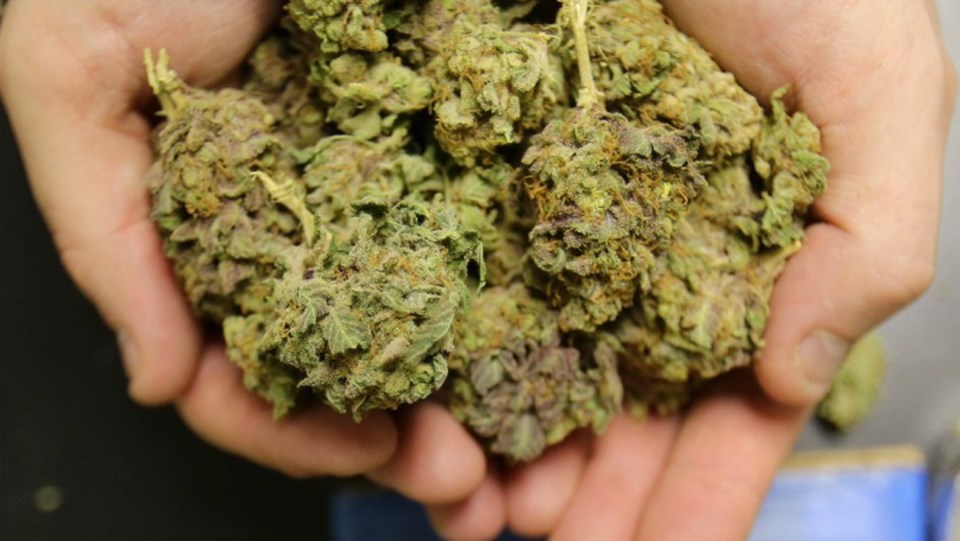Grey area? There’s no grey area when it comes to medical marijuana dispensaries, says Pamela McColl.
“The law is not grey,” she says, on the phone from Salt Spring Island. “The law is black and white.”
So McColl, who speaks for a group called Smart Approaches to Marijuana Canada, can’t understand why the storefronts are being allowed to proliferate in Victoria and Vancouver. In fact, she has gone to the Office of the Police Complaint Commissioner in an attempt to force a crackdown in both cities.
“The reason Victoria has a dozen-plus illegal medical-marijuana dispensaries is because the police have not done their job,” she states in a document filed last week.
“They have stated that it has not been a priority to enforce the Criminal Code and force the closure of the pot stores. … By not upholding the laws of Canada, the Victoria Police Department have allowed these operations to flourish, profit from crime, and pose a threat to public safety.”
The Office of the Police Complaint Commissioner has diverted McColl’s complaints to the Victoria/Esquimalt and Vancouver police boards. The former body will get its first look at the grievance at its meeting this month. The Vancouver board will hear it Sept. 17.
But local politicians say the situation isn’t as straightforward as McColl claims. The pot shops — about a dozen in Victoria and 100 in Vancouver — have sprouted in the landscape left by court rulings that deemed Health Canada’s medical-marijuana rules to be too restrictive.
Stamping out storefronts isn’t that easy, they say, so Victoria council has signalled its intention to follow Vancouver’s lead and regulate them instead. Vancouver will charge a $30,000 licensing fee ($1,000 for non-profit compassion clubs) and keep dispensaries away from schools, community centres and each other.
Not nearly good enough, McColl maintains. There’s still way too much ignorance about the drug to treat it that lightly. “I don’t think we should legalize marijuana as long as 40 per cent of women think it’s OK to use while pregnant, which it’s not,” she says.
Municipal licensing would still result in untaxed suppliers, some tied to organized crime, selling an untested, potentially contaminated product to dispensaries that promise unsubstantiated benefits to vulnerable sick people, McColl says (though she also says the truly ailing make up only a tiny fraction of buyers). If there is a medical benefit to marijuana, it should be prescribed by medical professionals through conventional pharmacies, like any other drug. As it is, the system is wide open to “quackery.” Municipalities shouldn’t be in this game.
To which Mayor Lisa Helps, the one leading Victoria’s regulation efforts, says … she concurs.
“I completely and 100 per cent agree with her,” Helps says. “No municipality in the country should be licensing medical substances.”
The problem, she says, is the federal and provincial authorities who should be driving this bus have stepped away from the wheel, leaving the municipalities scrambling into the seat. If activists want to agitate for change, senior government should be the target.
As for the law, Helps agrees that it’s clear: Marijuana is still illegal. It can be tough to lay a charge that results in a dispensary closing its doors, though. And, frankly, the police have nastier drugs and nastier crimes to worry about.
Deputy Chief Steve Ing of the Victoria police acknowledges as much: “We prioritize all of our enforcement based on the public interest.” At the top of the list are crimes of violence, ones where there’s an imminent threat, ones where weapons are involved. … But yes, he says, VicPD recognizes the federal marijuana law exists, and is working with its other partners, including prosecutors.
McColl wants more decisive action. RCMP shut down Parksville’s dispensary in April, she notes, and Nanaimo has balked at following Vancouver and Victoria’s approach. Is Ottawa, having licensed commercial outfits like Nanaimo’s Tilray to grow medical marijuana, really going to let them be undercut by unlicensed dispensaries? “Could Tilray sue the feds for not upholding the law? This is really goofy.”
Yes, it is, just as it’s goofy that Ottawa is leaving municipalities to fix the problem with what Esquimalt Mayor Barb Desjardins, who co-chairs the police board, describes as the few tools in their toolkit.
On the phone from Vancouver on Friday, she has this to say: “I cannot believe the number of shops that have opened up here.”



